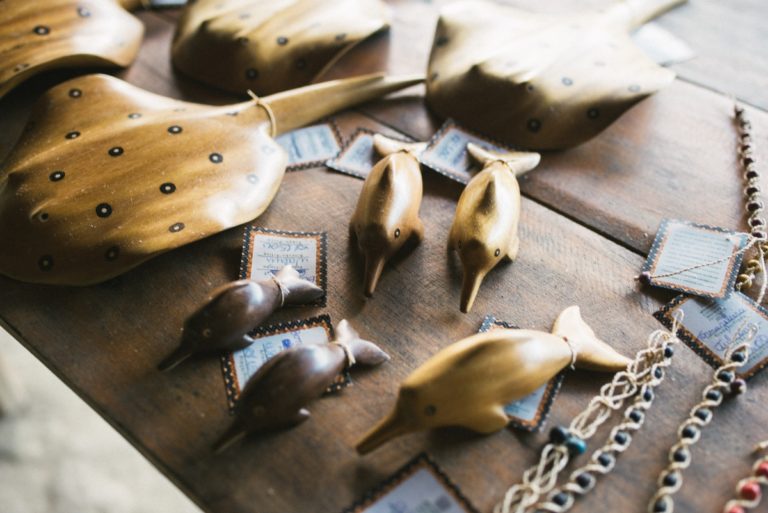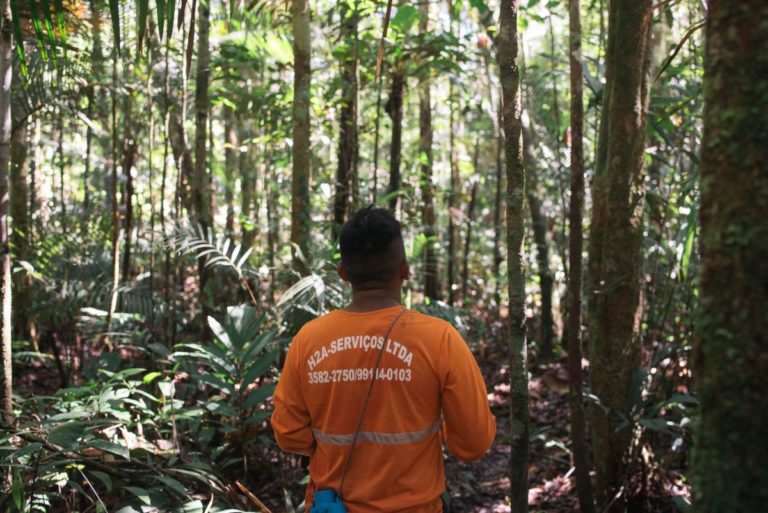Quite often, when we go on a trip, we respect a regulation without really understanding its origin and the reasons for its existence. Some rules may seem trivial, yet they are the responsible for guaranteeing the respect and the sustainabilitythat have long been under threat. These precautions are even more important when visiting traditional communities, like the indigenous and riverside that welcomes Braziliando’s travelers. Check below 7 guidelines for sustainable tourism , explained and dissected, so that they will not be flouted again!
1. Do not interact with wild animals 


For a trip to be sustainable, it is necessary that it can be reproduced over time without affecting the ecosystem in which it is done. A responsible trip requires the responsibility of the tour operator, who must not involve the traveler in activities that are harmful to nature, and also of the traveler, who must refrain from touching and feeding animals, for example.
2. Do value the local production 🇧🇷
Choose to get your travel souvenirs directly from local artisans. This way, you not only leave with a unique and special memory that has meaning to you, but also helps the community, keeping its art alive and strengthening its economy.

3. Do not use alcohol, cigarettes and other intoxicants 🚭
Drugs can interfere with your experience and harm the community, since unconscious acts can lead to accidents and unwanted consequences. In addition, drugs can have a negative impact and a long-term effect in, generating addictions and bad habits amongst villagers.
4. Do choose longer duration journeys and travel in small groups 🛤️
It takes time to connect with people, really get to know the destination and immerse yourself in a new reality. Then, to have an authentic experience, plan your trip with enough time for a real immersion. Besides, it is preferable to travel in small groups so you can have a greater connection with other travelers and with the hosts. This attitude also helps to mitigate the negative impacts of mass tourism.
5. Do ask permission before taking photos 📸📸📸
Put yourself in the other's shoes! You would probably feel more comfortable giving your consent before being photographed and would prefer to meet the person behind the camera and know what he or she intends to do with the photo before giving your permission, right? So, in addition to always ask for permission (either for an adult or for the children's parents), take the opportunity to introduce yourself and get to know the person you want to photograph.
6. Dress yourself properly 👚
Understand how people usually dress in the destination so as not to disrespect local customs nor create barriers and conflicts. If you are venturing yourself in the forest, for example, first choose modestly over opulence. Also, have in mind that sobriety is a mark of respect and humility.

7. Do respect culture and local traditions 🌚🌝
Knowing that needs and lifestyle are different, be willing to adopt the local way of life, even if this mean depriving yourself of things that are part of your society. Besides, avoid direct or indirect comparisons between two societies. Bragging about your lifestyle can generate envy and frustration. Likewise, praising the lives of locals excessively can be reductionist and disregard the social problems and challenges inherent in the region.
There aresome guidelines for sustainable tourism and information that can help you better understand the "why" behind some codes of conduct!
Generally speaking, community-based and sustainable tourism aims to create an authentic experience, different from traditional forms of mass tourism. No longer tourists but travelers, those who are looking for an experience like Braziliando’s understand the importance of moving away from ethnocentrism.
After all, we prefer to travel with an open mind and heart towards the different and the unknown!



